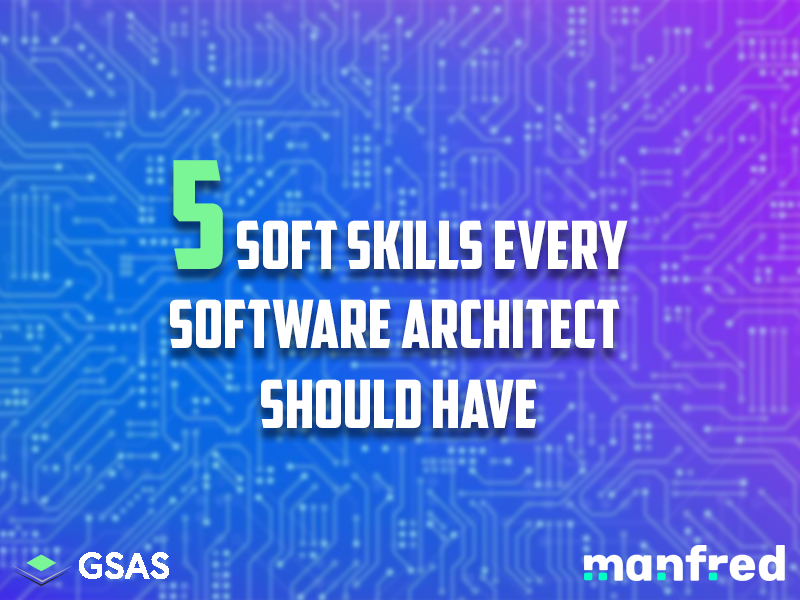5 soft skills that every Software Architect should have

There might be a general thinking that a Software Architect only need technical skills, when the reality is that soft skills can be even more important. Soft skills have become essential for companies when hiring a new technical profile. Like everything else, the set of skills needed depends on the role to which it is applied.
After analyzing insights gathered in talks with Software Architects, Recruiters, Developers, podcasts or reports, here we bring a 5 soft skills that every Software Architect need to have list. Rock it!
Communication: the key that opens every door
Everyone agrees. To have excellent communication skills is essential for a Software Architect. The role involves understanding everything that is going on in a project and being able to adapt the information so that the team can access it without difficulty. This is: telling out how the architecture for your project works and making sure that everybody understands.
Self-management: a tricky one
The Software Architect isn’t a lonely player. The Software Architect is a team player, with the need to take the lead in some occasions. That’s why it is fundamental for them to self-manage and to achieve the most efficient workflows, so that they can carry out the execution of specific activities of a project, while their teammates are able to follow the lead.
Software Architects need to design really complex systems, but also to have the vision of the whole project, or, furthermore, the whole company. Being organized is a must on their daily-basis.
Problem-solving: to be or not to be, that’s the question
As a leader, a Software Architect needs to provide solutions, not problems. As a builder, they must be able to simplify potentially complex applications so that the architectures they design are simple to implement. In that way, pragmatic solutions are innegotiable. Sometimes, the easiest or shortest way isn’t the right solution, so they need to have a full picture of the situation to take the best path.
Negotiation skills: in the middle of the parts
The architect, as designer of the structure of a system, is placed in the middle of clients/users, the company and the development team. Negotiation skills are needed to reach the best solution for every part involved in a process. Imagine a situation in which the development team is going to accept a technical debt, as they need more time to solve a problem, but the solution given to the user isn’t the perfect one. Assertiveness is also required to avoid conflicts while solving a matter. They will need to make sure that every part reaches and accept the most pragmatic solution.
Innovation: constant growth
The Software Architect needs to grow constantly. Not just in a technological way, but also to understand how the market works and evolves. They need to work into the ability to be reinventing, learning, reading, looking for new technological trends. To sum up, make the architecture stay relevant and up to date.
What else you can do to improve?
Well, fortunately there are many communities, events and groups to network and improve. The Global Software Architecture Summit (GSAS2022) is a WONDERFUL example. It is a 2-days summit, based in Barcelona, which aims to attract and connect software architecture experts from all over the world as well as all those interested in building working software to improve their skills, share knowledge, and connect.
There, our amazing Sven Peters will lead a talk about The Effective Software Architect- Work Smarter, not Harder. Here’s what you would learn by listening to him:
We’re agile, we’re doing DevOps, we work in cross-functional teams, and we use the latest developer pipeline tooling. With all those methodologies and technologies we should be highly effective, right? Probably not. Most of us still struggle with balancing coding speed and quality, working on the stuff that really makes a difference, and feeling constantly stressed by all the things we should learn.
Effective developers don't just write clean, simple, and robust code. They also have a strong understanding of the entire development process and the problem that needs to be solved. They take time to learn, practice, and play.
Learn how those developers build effective coding habits, think about the outcome first, reserve time for deep work, and much more. You’ll walk away from this talk with lots of ideas on how to work smarter, not harder.

